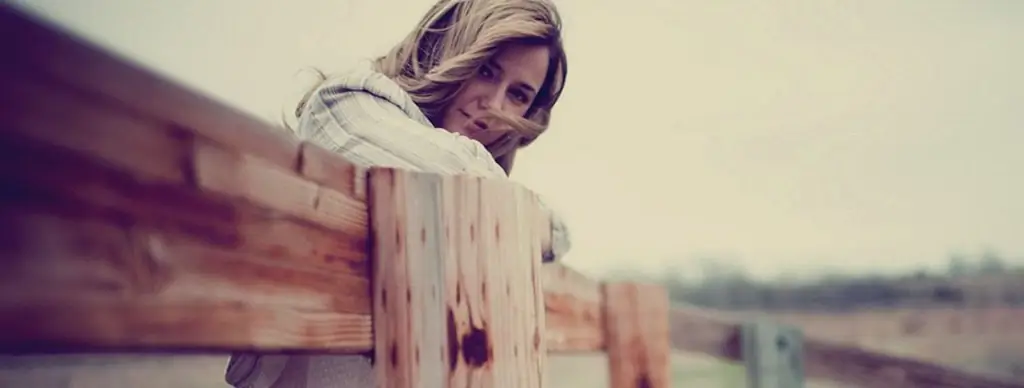- Author Adrian Jeff jeff@psychologosportal.com.
- Public 2023-12-17 05:06.
- Last modified 2025-01-24 14:09.

Russian question: what to do if there is no law in your head?
“The law is like a pivot: where you turned, it went there” - is a well-known Russian saying. Why is this happening to us? Are the hopes that Russia will someday become a territory of law and order not come true? And how to regulate relations in a society that does not obey the law? Yuri Burlan's System-Vector Psychology answers these questions.
The legal octopus is increasingly entangling Russia. We are increasingly concerned not with how we best do our job, but with how we, if something happens, will prove our innocence in court. Hence - the dominance of paperwork, for each action - a report and help. And more and more often you hear from people: “I used to go to work with pleasure, but now it’s like hard labor …”
An attempt to completely subordinate all affairs in Russia to law and order, aligning itself with the successful West in this matter, is causing ever-increasing tension in our society. Yes, we see that there, for them, the law works. They have long been deciding all cases in court, from controversial economic issues to disagreements between children and parents. A little something - immediately to the court. The court will sort it out, put everything in its place. The court's decision is the law. Everyone respects and observes him.
It's another matter with us. No matter how hard the state tries to bring everyone to a single letter of the law, for some reason the Russian person cannot squeeze himself into its framework. He will always find a way to get around it. Moreover, in some cases it is even considered aerobatics and special prowess, but en masse is a way of life. Well, we do not want or even cannot somewhere deeply, at the genetic level, poke around in legal intricacies and build our relationships under the sword of Damocles' prescriptions. “The law is like a pivot: where you turned, it went there” - a well-known Russian proverb.
Why is this happening to us? Are the hopes that Russia will someday become a territory of law and order not come true? And how to regulate relations in a society that does not obey the law? Yuri Burlan's System-Vector Psychology answers these questions.
Mentality mentality strife
When Yuri Burlan at the training invites Russian students to choose what is closer to them - law and order or justice and mercy, what do you think is the most common answer? Of course, justice and mercy, because these are categories that are close to our mentality.
To understand what the mentality of the people is, you first need to clarify the concept of a vector in system-vector psychology. A vector is a set of innate desires and psychological properties that determine a person's value system, his behavior, type of thinking, life scenario. There are eight vectors in total, and their names are due to the most sensitive area of the body - cutaneous, anal, urethral, muscular, visual, sound, olfactory and oral.
Mentality, as a way of perception of people living in the same territory, can be described using four vectors that determine our stability, the ability to survive in the landscape. The mentality is cutaneous, anal, muscular, urethral.
In the developed countries of the West, there is a skin mentality. Formed in small limited areas with a favorable climate for agriculture, it is distinguished by a clear sense of boundaries, the value of individualism. In Europe, it was easy for individual farms to consistently grow a good harvest. It was only necessary not to be lazy, but to work. And in order to preserve the grown from outside encroachments, it was possible to allocate additional resources at the expense of surplus profit for its protection. This is how cities were formed in which relations were regulated by law.

On the one hand, the law limited the person himself, but on the other hand, protected him. Therefore, representatives of the skin mentality see its benefits and benefits for themselves, and these are significant values in the skin vector. Therefore, it is natural for them to strive to observe the law.
A completely different mentality has formed on the territory of Russia with its endless territories and harsh climatic conditions. Here you could never be sure of the harvest, and well-fed years were replaced by hungry ones. In the hungry it was possible to survive only together, helping each other. Those who were "lucky" with the weather and who had a fruitful year shared with those who had nothing to eat this time. And they knew for sure that if next year a drought or flood destroyed their crops, the neighboring village would gather, load the cart and share what it had. This is how our Russian muscular communal mentality has developed, in the values of which mutual assistance and the feeling of oneself are inseparable from others.
In such conditions, the law did not provide a person with a sense of security and safety. After all, he guarded and protects private property, assuming that a person bears full responsibility only for himself. And in Russia, everyone is responsible for the other.
The vast territory of the country, the borders of which are not physically palpable, the ability to constantly explore new spaces have become the reason for the formation of the urethral component of the Russian mentality. That is why Russians are not limited, open-minded, generous, focused on bestowal.
As the system-vector psychology of Yuri Burlan says, the values of the urethral vector are diametrically opposite to those of the skin. They are based on justice and mercy as opposed to Western law and order. The public in the Russian mentality is always above the personal. Urethral justice and mercy are categories that go beyond any limitation because they are focused on bestowal. Whereas getting into oneself is always limited. The return cannot be limited. It is endless. This is why the law in Russia will never work.
In order for the law to work, it must be deeply understandable, in tune with the inner values and attitudes. But it is not so with a Russian person.
It is impossible to remake a mentality, just as it is impossible to impose values alien to a person without serious consequences for his psyche. Any reforms that are not carried out in line with the mentality of the people will certainly cause tension in society. So at one time the Stolypin reforms caused great harm to Russia, which broke communal peasant traditions, giving priority to the development of individual farming. Was it not then that the foundation was laid for subsequent revolutionary events?
So how can we live? What is complete anarchy now? Does everyone do what they want? Not at all. There are other ways of regulating relations in society. In order to understand which ones, you need to consider different categories of truth.
The law is not a panacea
There is a common expression: "Each person has his own truth." And indeed it is. However, the system-vector psychology of Yuri Burlan clarifies this position, differentiating the category of truth depending on the vectors. There is anal truth, skin truth, urethral truth.
In ancient human society, relationships were built around the distribution of food obtained by the tribe. Using this base, it is easiest to understand what is the truth of representatives of different vectors.

Anal truth and justice is when everyone is equally divided. Equality and brotherhood play a significant role in the values of this vector. Therefore, the anal truth, relatively speaking, is that no matter how many children there are in the family, food is distributed equally among the heads of families. The result is: one child - one piece of meat, three children - also one piece of meat.
According to the system-vector psychology of Yuri Burlan, the modern world is in the skin phase of development, so now skin truth dominates over us. This means: how much you earned, you get so much. Yours is yours, mine is mine. Individualism. Responsibility only for yourself. Regardless of how many children there are in the family, the breadwinner receives the part of the spoil that he himself earned. And if there is no hunter in the family?
The urethral truth lies in the formula: yours is yours, and mine is also yours. This is the distribution of food by shortage, no matter how much you earn. If the family has one child, she will receive one piece of meat. If three - three pieces.
It seems that skin truth, which became the basis for the law, solves all problems. If a person works more, therefore, he earns more and has the right (skin expression) to more security. It's like in the animal kingdom - the strongest survive, and the weak dies. However, we see that human society is not built on such principles. Still, a person is a social being.
Obviously, not all people are born with the same abilities. Some are more talented, strong and intelligent, others less. But abilities and talents are given to a person not so that he can increase his personal success with their help, but so that he uses them for the benefit of society. The stronger should take more responsibility for others. After all, people survive only together. Nature is only interested in the survival of the species, and not its individual individuals.
And skin law encourages the survival of individuals. And in these conditions, other individuals are not able to realize their naturally less vivid abilities. But a person, regardless of what abilities are given to him from birth, wants to receive pleasure, to fulfill his desires. However, he is unable to do this in terms of skin law. And he accumulates dissatisfaction, frustrations, which necessarily lead to an aggravation of hostility between people, and hostility is the only reason that can cause the destabilization of society and its destruction.
We see that even in countries with a skin mentality, for which the law is a natural form of regulating relations, its application does not rid society of social tension, crime and other forms of manifestation of hostility between people.
This does not mean that lawlessness should be encouraged in the human community, let alone laziness and parasitism. But the solution to these issues does not lie in the field of law. It lies in the field of psychology.
What will help Russia?
The current skin phase of human development, which is short in historical terms, dictates the priority of the law to us, and we are trying to introduce it into society, not taking into account our natural mental predestination. And only awareness of their properties will help the Russian people to take the path that will certainly lead them to success. And not only him. After all, we are far from personal happiness, personal fulfillment. Unconsciously we are ready to fill the whole world.
It is in Russia that there are all the mental prerequisites to lay the foundation for a future urethral society based on the principles of bestowal, the priority of the public over the personal. We do not need a law to properly interact within society, because our values are higher than it. We only need to revive these values, which are already in our unconscious and which have already made it possible to build a model of the society of the future in the USSR in the recent past, albeit prematurely.

What do I need to do? Conduct a general psychological educational program for the adult population and start from childhood to educate a new generation of Russian people in their own values. The formation of systemic thinking, awareness of their potential will help the Russian people create a society where everyone will receive according to shortages, giving everything that he is capable of, for which his nature has programmed. And it will be a voluntary joy of serving society, not a whip of the law.
For a detailed program on how to do this, welcome to the training on systemic vector psychology by Yuri Burlan. Sign up for free online classes here.






